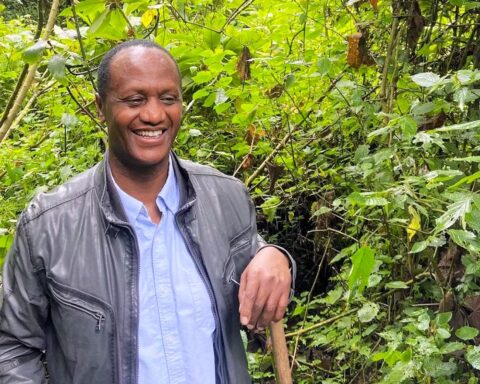Recently, four teenagers allegedly left Quebec to join extremist groups in Syria. Their departure prompts concerns about whether we are doing an adequate job of integrating children of immigrant families.
Do some youth become radicalized and develop oppositional identities even though Quebec’s immigration and integration policy tries to promote intercultural rapprochement, common values and solidarity?
As far as this issue is concerned, media reports highlight Muslim communities in general, and North African and Middle Eastern communities in particular.
Discrimination and negative public perception
From 2009 to 2013, immigrants from these regions constituted more than one-fourth of Quebec’s immigrants. In Quebec schools in 2011, North Africa was the first birth region of students born outside of Canada, and Arabic was the first foreign language most often spoken by students whose mother tongue was neither English nor French.
Despite their high social and cultural capital and strong knowledge of French, these immigrants have a very high unemployment rate, due in part to the discrimination they face.
For many immigrants who leave their country for a new, better life in another, the academic success of their children can usually – but not always – suggest they’re generally engaged in a positive, harmonious immersion into this new society.
In Canada and Quebec, the dominant public perception of Arab-Muslim immigrants has become more negative over the past decade. While a 2001 Leger Marketing poll found that 71 per cent of Quebecois reported the events of 9/11 did not change their opinion about Muslims, a meta-analysis of public opinion and sampled interviews conducted in the 2000s clearly shows that Muslims systematically rank as the least favoured group compared with other religious or cultural communities. Moreover this negative public opinion is more pronounced in Quebec than in the rest of Canada, especially within French-speaking communities.
Studies show strong academic success overall
In 2011, the Research Group on Immigration, Education, and Schooling (GRIES) conducted a systematic follow-up of two cohorts of immigrant-origin students entering Quebec high school in 1998 and 1999. The study distinguished between those enrolled in the French and English sector, and between their major regions of origin: East Asia, Southeast Asia, South Asia, North Africa and the Middle East, the Caribbean and sub-Saharan Africa, Eastern Europe, and Central and South America.
In the French sector – where, due to 1977’s Bill 101, the majority of immigrant-origin students are required to attend school – 3,715 students out of the sample’s 24,099 first- and second-generation students originated from North Africa (mainly from Algeria, Morocco and Tunisia) and the Middle East (Mainly from Egypt, Lebanon and Syria).
[R]esearch shows that immigrant students belonging to marginalized groups adopt different ways of coping with discrimination towards them.
According to this province-wide study’s findings, in Quebec French-language high schools, first- and second-generation adolescents originating from North Africa and the Middle East have the highest graduation rate in comparison with native third-plus-generation students (after their East Asian and Eastern European peers).
A specific analysis of these students that I conducted shows that their academic performance is due to their high language skills. Although many of them are born outside of Canada, nearly half have French as their mother tongue or the language most frequently spoken at home. Only 10.6 per cent of these students need linguistic support in high school.
The features of their schooling process and the characteristics of their schools also play an important role in their success.
These students have high primary-level entry rates, over-representation in the normal age upon entering high school, high private-school attendance rates and a moderate presence in public schools attended by students from low socio-economic backgrounds. The study also found that students born in Canada and those who were French speakers were more academically successful. In addition, students from Lebanon, Syria and Egypt performed better than those from Morocco, Algeria and Tunisia.
In a more long-term study about the same cohorts of students, the researchers of the Research Group on Immigration, Education, and Schooling (GRIES) – Gerard Pinsonneault, Marie McAndrew and Jacques Ledent – found that students from North Africa and the Middle East have a higher college and university registration rate compared to other geographical groups.
[E]thno-racial devaluation in the new society leads to anger and distress, less satisfaction with the new society, and even poorer physical and mental health.
All of these findings could soothe educators’ concerns about the apparent tendency of North African- and Middle Eastern-originated youth feeling separated from Quebec society. For many immigrants who leave their country for a new, better life in another, the academic success of their children can usually – but not always – suggest they’re generally engaged in a positive, harmonious immersion into this new society.
Different ways of coping with discrimination
However, research shows that immigrant students belonging to marginalized groups adopt different ways of coping with discrimination towards them. Some groups, especially those from a high socio-cultural background, may strive for academic success because they consider school a way to improve status.
Others who feel that social mobility for their ethnic group is limited may see few links between academic success and a good social position. As a result, they may develop oppositional identities as a way to show their resentment at the discrimination.
Either way, research indicates that ethno-racial devaluation in the new society leads to anger and distress, less satisfaction with the new society, and even poorer physical and mental health.
We may never discover what really motivated those young people to try to leave the country. However, the broad lessons we can learn from these studies are the need to eliminate discrimination, and to improve our culture of meritocracy.
In the coming years, when immigrants and their children will account for most of Canada’s population growth, educators and policy makers should consider these important lessons.
Mahsa Bakhshaei is a Postdoctoral Fellow with joint affiliation between McGill University and the University of California, Los Angeles (UCLA). Her current interest is the educational performance of immigrant-origin youth. Her postdoctoral project, which is granted by the Fonds de recherche du Québec – Société et culture (FRQSC), is a comparative study of the educational performance of South Asian high school students in Canada and the U.S.




